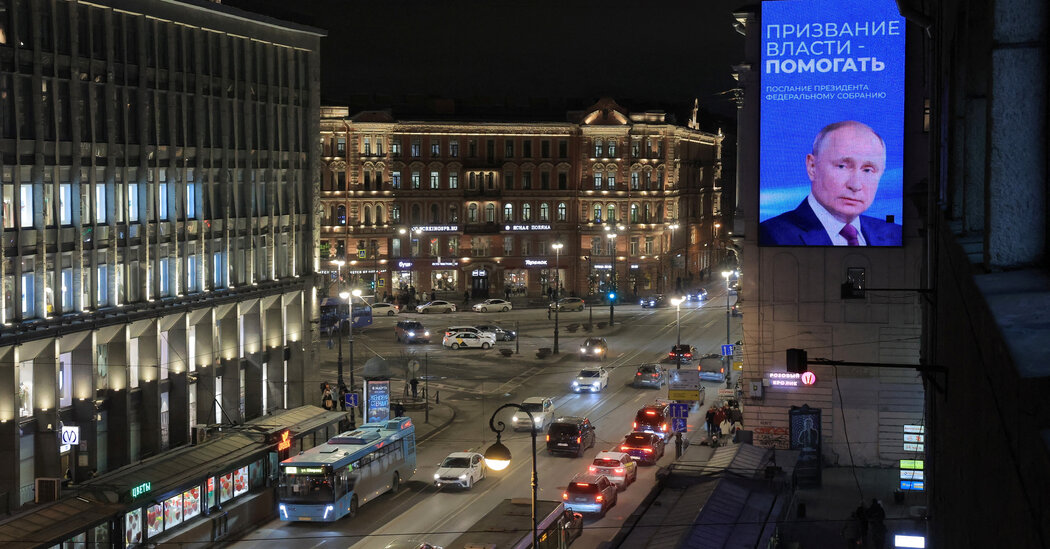Facing an election this weekend and the fallout from Aleksei Navalny’s death and the war in Ukraine, Russia has intensified online censorship using techniques pioneered by China.
Russia is ratcheting up its internet censorship ahead of elections this weekend that are all but assured to give President Vladimir V. Putin another six years in power, further shrinking one of the last remaining spaces for political activism, independent information and free speech.
The Russian authorities have intensified a crackdown against digital tools used to get around internet blocks, throttled access to WhatsApp and other communications apps in specific areas during protests, and expanded a program to cut off websites and online services, according to civil society groups, researchers and companies that have been affected.
Russia, they said, is turning to techniques that go beyond its established practices of hacking and digital surveillance, taking a more systemic approach to change the way its domestic internet functions. In doing so, the country is using methods pioneered by China and Iran, forming an authoritarian model for regulating the internet that contrasts with the more open approach of the United States.
Russia “has reached a new level of blocking in the last six months,” said Mikhail Klimarev, a Russian telecommunications expert and executive director of the Internet Protection Society, a civil society group.
Internet censorship has grown in Russia for more than a decade, but the scale and effectiveness of the most recent blocks have surprised even technical experts. The techniques add to an infrastructure of repression built by Mr. Putin to keep protesters and opponents in check and serve the country a diet of state propaganda.
The moves come at a critical time for Mr. Putin, who has been dealing with memorials for Aleksei A. Navalny, the Kremlin’s fiercest critic, after he died last month in a Russian prison, as well as the effects of an ongoing war in Ukraine. On Friday, Russians also begin heading to the polls to vote in a presidential election that Mr. Putin is all but certain to win, with the strengthened internet controls showing the government does not plan to take any chances.
